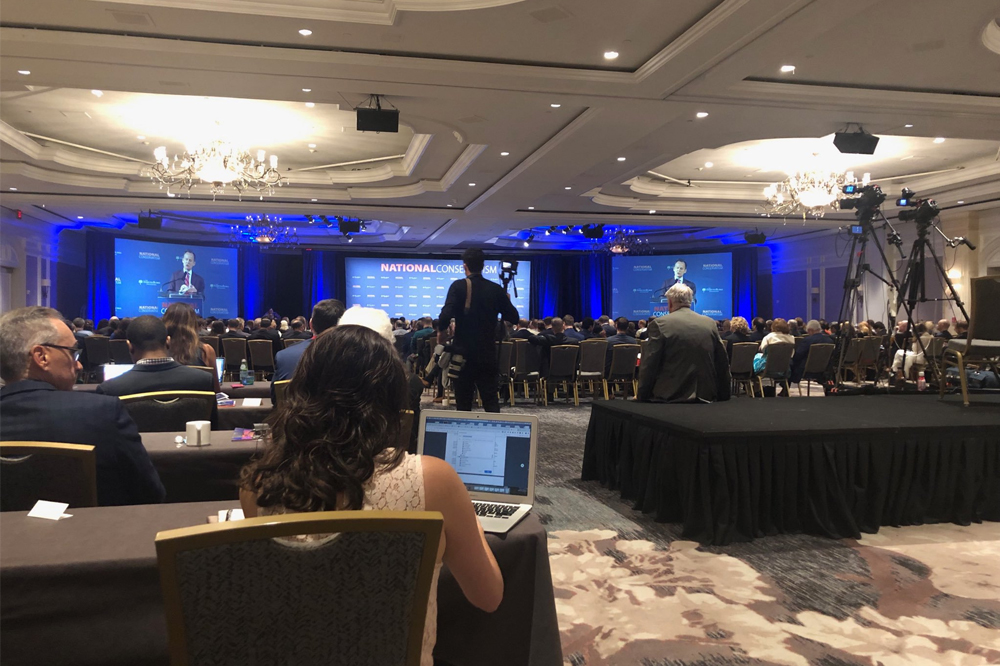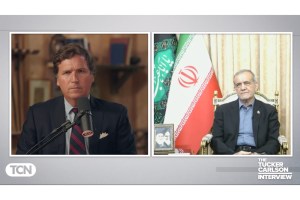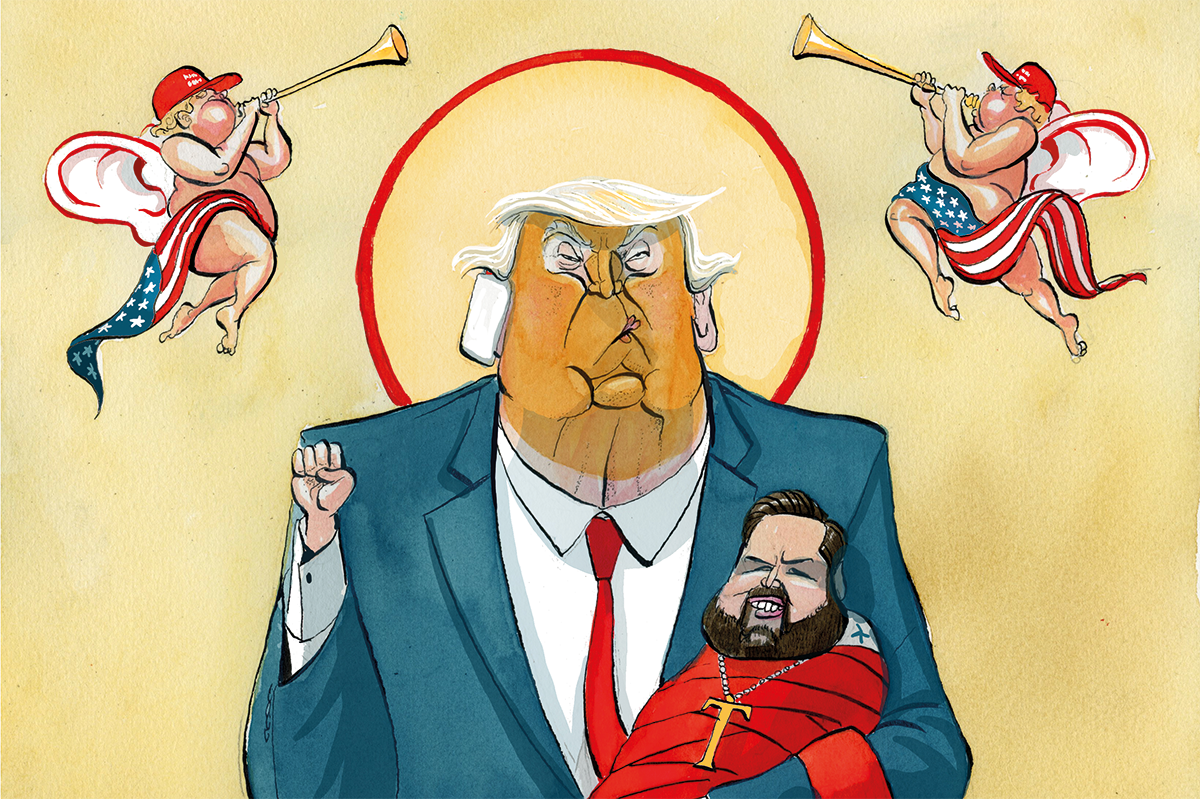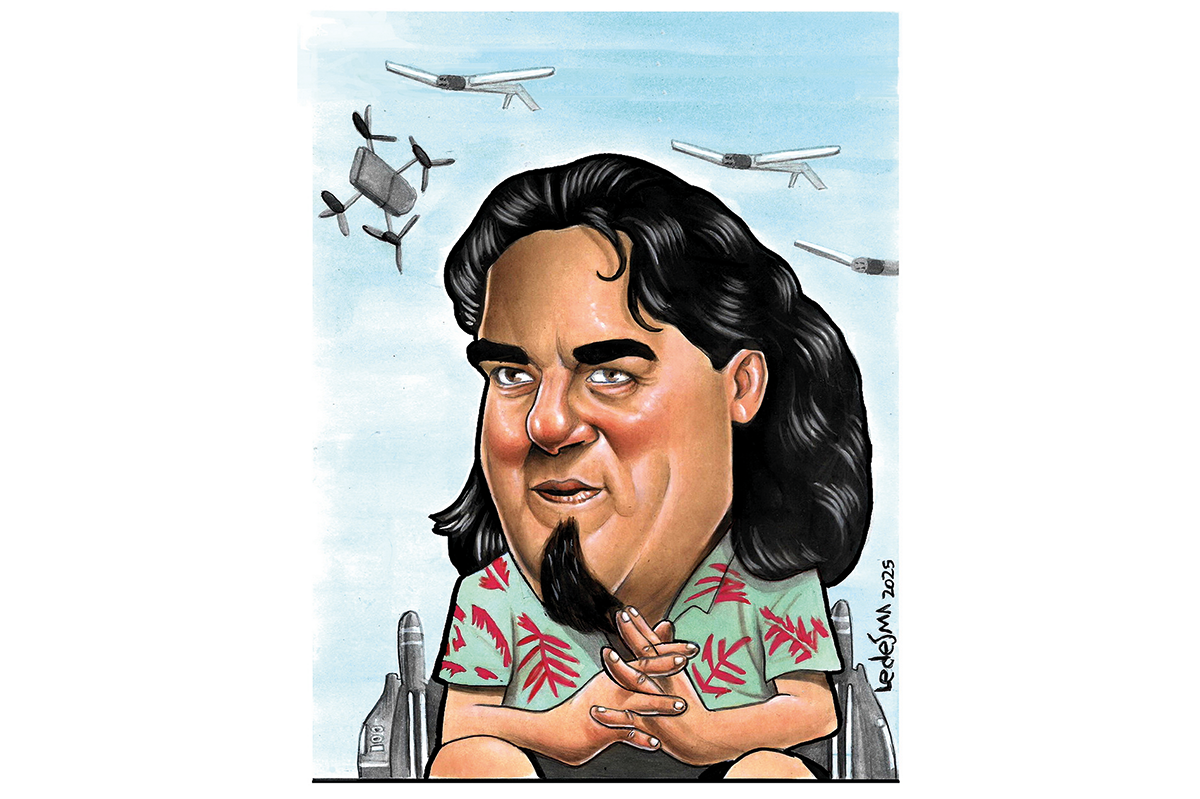The National Conservatism Conference is in the books. The two-day event delivered ferment and sparring on a host of key domestic policy issues: trade, industrial policy, Big Tech, identity politics, and much else. Yet foreign policy – half of the equation for any putative political program – was little more than an afterthought. If the conference is any indication, the new populist Right is content with incoherence, or worse, inertia, on the key question of America’s role in the world.
Peter Thiel’s keynote address on Sunday night received deserved plaudits, with most seizing on the billionaire’s broadsides against Google and his condemnation of the college industrial complex. The only dip in Thiel’s speech was on foreign policy: his criticism of our endless War on Terror was oddly muted and even uncertain.
Tucker Carlson, newly-nicotine free and bouncing off the walls, played the happy warrior to perfection the following morning. Yet again, his focus was domestic. Carlson gleefully skewered corporations, the Republican party, himself, and always, always, America’s corrupt elites. The Fox News host has shown unparalleled consistency and courage as a foreign policy restrainer and reportedly has the president’s ear. But his focus this day was Big Business, not war and peace.
Then there was Bolton. The unabashed chickenhawk is the last Bushie standing. He is the avatar (and occasional author) of two decades of foreign policy disaster. Bolton was also, notably, the only Trump administration figure to speak at the conference. At least the mustachioed menace was at pains to sound reasonable. Progress, perhaps, but measured in inches.
The conference’s lone foreign policy panel was a parade of hawks from the Hudson Institute and its cousins. Risible re-brandings were the order of the day: America should be a global ‘sheriff, not a cop,’ which apparently amounts to a reheated Ledeen Doctrine. Gary Cooper, six shooters…it was enough to make another draft dodger, the Duke, smile from the saddle, somewhere.
The vapid doctrine of ‘fight them over there’ was trotted out (pro tip: think a little harder about who ‘them’ is). All ritualistically bashed NATO, but no speaker had the sense or independence to suggest actually junking the farcical Atlantic alliance. Instead, the trick is apparently to continue to cajole the Europeans to pay more – a show that hit reruns during the Nixon administration.
Hudson’s Michael Doran invoked America’s supposed Middle Eastern allies. Saudi Arabia, Israel, and Turkey, he averred, were the guarantors of regional stability. That these states are basically mutually antagonistic and increasingly unable to defeat even their weak neighbors was hand-waved away or outright ignored. David Goldman, the lone interesting voice on stage, noted that Turkey’s Erdogan has ‘been bought lock, stock, and smoking barrel by the Chinese.’ Everyone has woken up to China, at least rhetorically.
A foreign attendee, whose name Cockburn sadly missed, had the temerity to ask: ‘Who actually fought ISIS?’ Even better, he answered his own question: the Kurds and Iranian-backed militias. The Saudis, noted this Lafayette of the midday Ritz ballroom, wouldn’t send so much as a platoon to Syria or Iraq. His words fell on deaf ears. America, he was assured from the stage, had done the heavy lifting and defeated terror.
For those paying attention, the elephant in the room was National Conservatism’s eager emcee, David Brog. Brimming over with bonhomie, he is an Adelson acolyte, a longtime operative for perhaps the most execrable billionaire in all of American politics – a coveted title, to be sure. Sheldon Adelson, octogenarian casino magnate and GOP mega-donor, has advocated tossing a nuke into the Iranian desert. He is more beholden to the Chinese than even the hated Google; Adelson now draws the bulk of his gaming revenue from Macau, not Vegas. Yet there stood his surrogate as the new cheerleader for American nationalism. Washington wept.
After a half-hearted attempt to defend Bolton, a fellow attendee told me meekly: ‘We’re all learning.’ If only that were true! America’s foreign policy mandarins remain credentialed Bourbons, willfully and even proudly obtuse. If the thought-free think tankers on stage were the best ‘national conservatism’ can do, then this embryonic movement had best stick to the national and leave foreign affairs to someone else.

























